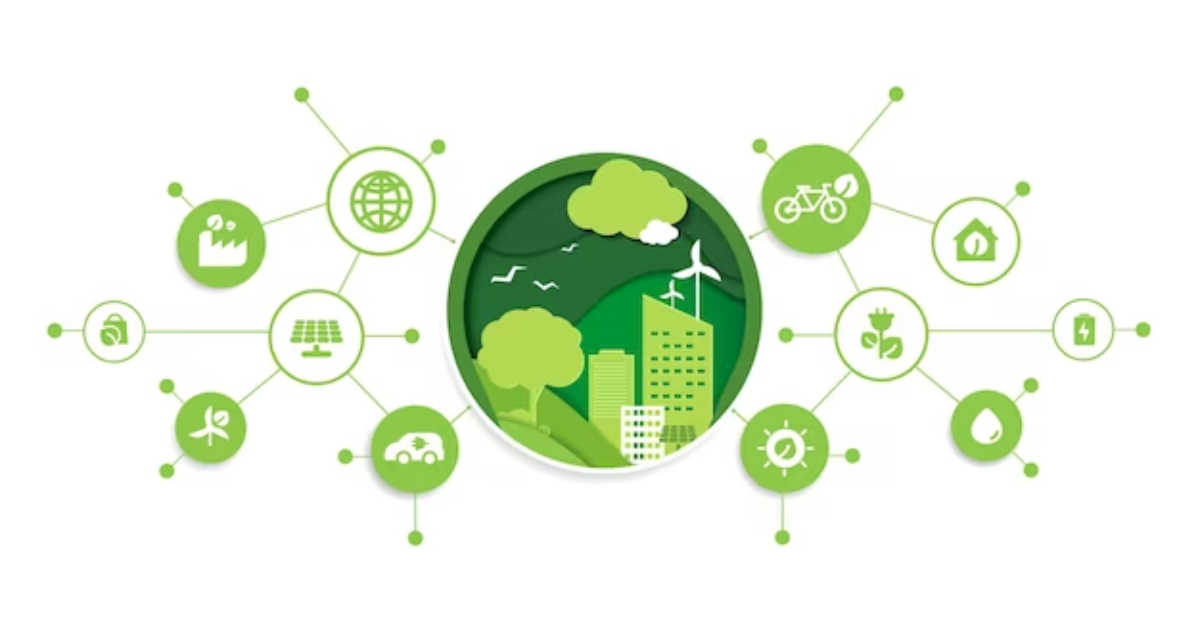
Introduction:
In an era dominated by technological advancements, the concept of sustainable technology has emerged as a beacon of hope. This article explores the multifaceted benefits that sustainable technology brings to the table, encompassing environmental conservation, social responsibility, and a more resilient future.
Environmental Conservation Through Innovation:
Sustainable technology is at the forefront of environmental conservation efforts. Innovations in energy-efficient devices, eco-friendly materials, and waste reduction technologies contribute significantly to the global fight against climate change. By adopting these innovations, individuals and businesses alike play a crucial role in minimizing their environmental impact.
Renewable Energy Solutions:
One of the key benefits of sustainable technology lies in its emphasis on renewable energy sources. Solar panels, wind turbines, and other clean energy solutions provide a sustainable alternative to traditional fossil fuels. These technologies not only reduce greenhouse gas emissions but also pave the way for a more resilient and decentralized energy infrastructure.
Economic Advantages of Sustainability:
Contrary to the misconception that sustainability is costly, embracing sustainable technology often results in long-term economic advantages. Energy-efficient appliances, for example, lead to reduced utility bills, while investments in renewable energy can offer substantial returns over time. Businesses that prioritize sustainability often attract environmentally conscious consumers, contributing to their long-term success.
Social Responsibility and Ethical Practices:
Beyond environmental considerations, sustainable technology places a strong emphasis on social responsibility and ethical practices. Companies adopting sustainable practices prioritize fair labor conditions, responsible sourcing of materials, and community engagement. This holistic approach ensures that technological progress benefits society at large rather than causing harm.
Waste Reduction and Circular Economy:
Sustainable technology promotes a shift towards a circular economy, where products are designed with recyclability and reusability in mind. This approach minimizes waste and encourages responsible consumption. From biodegradable materials to innovative recycling processes, sustainable technology is reshaping the way we produce and dispose of goods.
Smart Cities and Urban Planning:
The integration of sustainable technology is transforming urban landscapes, giving rise to the concept of smart cities. Efficient public transportation systems, smart grids, and connected infrastructure contribute to resource optimization and enhanced quality of life. Sustainable urban planning ensures that technology serves the community while minimizing environmental impact.
Biodiversity and Conservation Technologies:
Technological innovations play a crucial role in biodiversity conservation. From wildlife monitoring using advanced sensors to data-driven approaches in habitat restoration, sustainable technology offers tools to understand and preserve the planet’s rich biodiversity. This intersection of technology and conservation contributes to the protection of endangered species and ecosystems.
Remote Access and Global Connectivity:
Sustainable technology facilitates remote access to resources and information, fostering global connectivity. This has profound implications for education, healthcare, and economic opportunities in remote or underserved areas. By bridging gaps and overcoming geographical barriers, sustainable technology promotes inclusivity and equal access to opportunities.
Resilience in the Face of Climate Change:
As the world grapples with the impacts of climate change, sustainable technology emerges as a key player in building resilience. From resilient infrastructure designs to climate data analytics, technology provides tools to mitigate and adapt to the changing climate. Sustainable practices ensure that communities are better equipped to face the challenges ahead.
Conclusion:
In conclusion, the benefits of sustainable technology extend far beyond the realm of environmental conservation. They encompass economic advantages, social responsibility, and the creation of a more resilient and interconnected world. To explore how you can contribute to this transformative journey, visit Sustainable Technology Benefit for insights and guidance on incorporating sustainable technology into your lifestyle or business.
